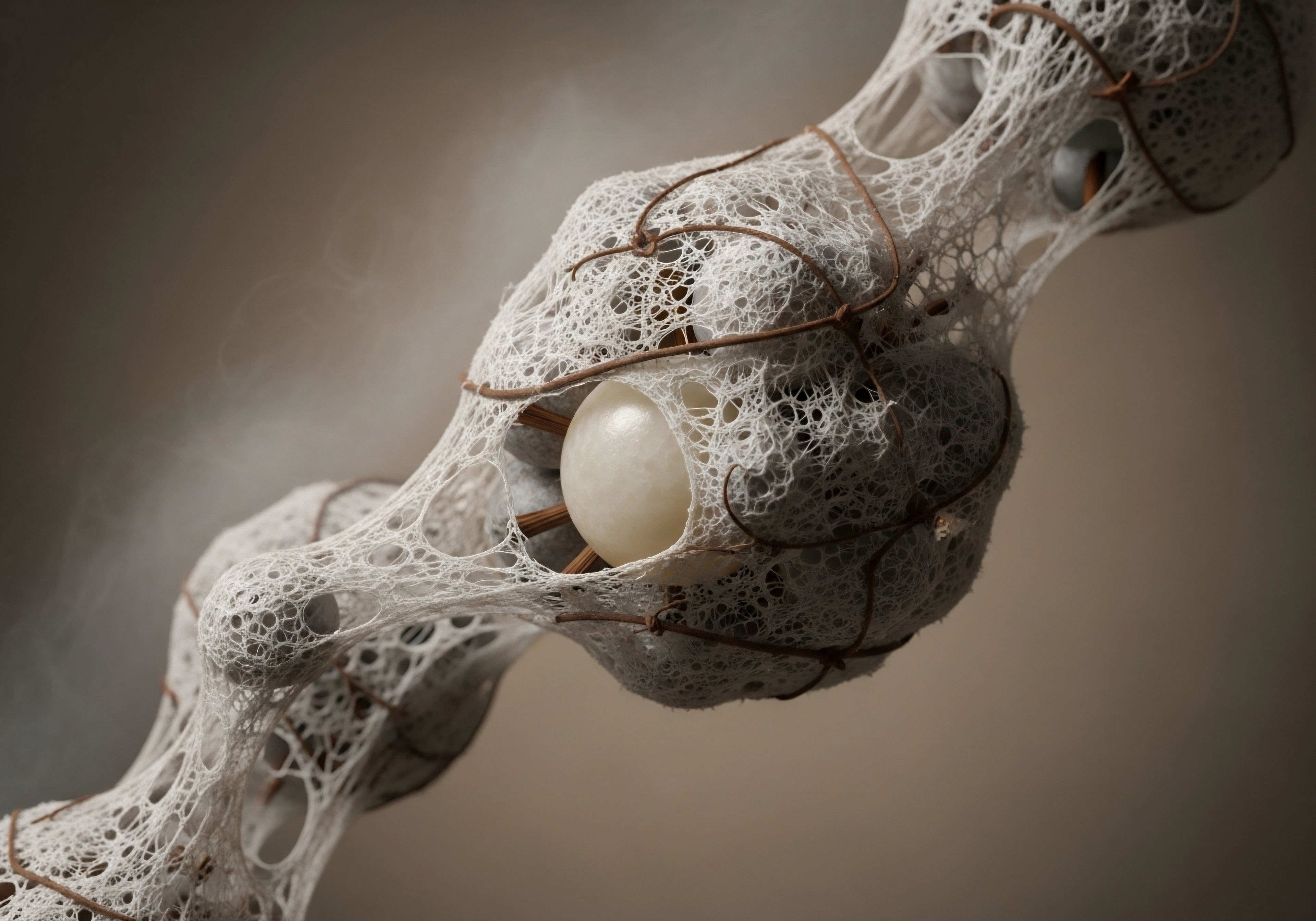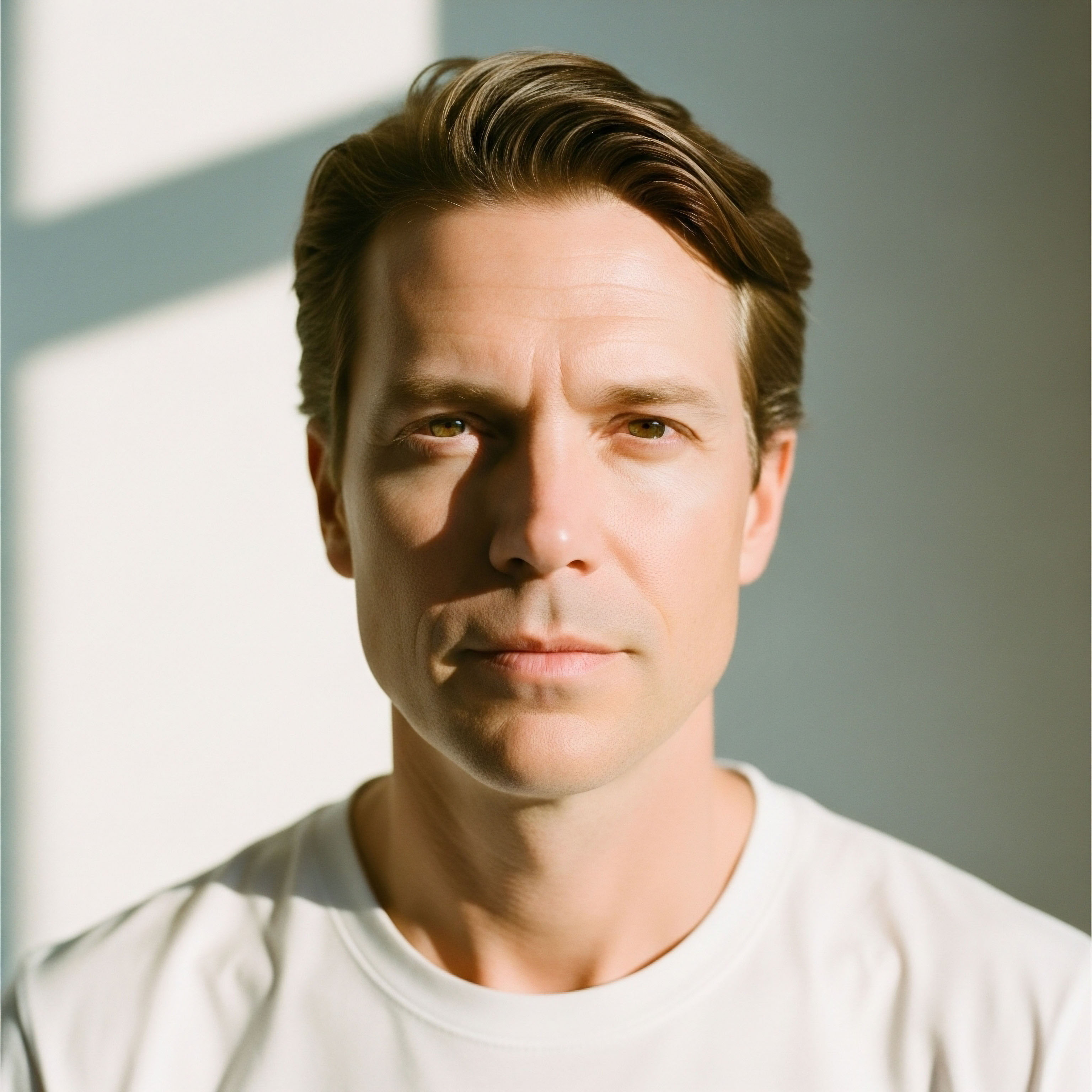

The Unseen Architect of Peak Biology
Sleep is not merely a period of inactivity; it is the master conductor orchestrating the symphony of your biological systems. It is the foundational pillar upon which peak performance, robust health, and sustained vitality are built. To neglect sleep is to compromise the very architecture of your being, leaving you vulnerable to diminished capacity and accelerated aging. This state of conscious rest is an active, intricate process, indispensable for recalibrating your endocrine, metabolic, and neurological functions to their highest potential.
At its core, sleep is the primary mechanism for hormonal regulation. During deep sleep, your body releases Growth Hormone (GH), a critical anabolic agent responsible for tissue repair, muscle synthesis, and metabolic efficiency. This nocturnal surge of GH is fundamental for recovery and rejuvenation, directly influencing your body’s capacity to build muscle, burn fat, and maintain optimal physiological function. Without sufficient deep sleep, this vital hormonal release is curtailed, hindering recovery and impacting body composition.
Furthermore, sleep dictates the rhythm of your sex hormones. Testosterone production, particularly in men, experiences its most significant pulsatile release during sleep cycles. A mere week of restricted sleep ∞ as little as five hours per night ∞ can diminish testosterone levels by a substantial 10-15%.
This decline far outpaces the gradual, age-related decrease, directly affecting energy levels, libido, cognitive clarity, muscle mass, and overall physical prowess. The interplay is bidirectional; low testosterone can also exacerbate sleep disturbances, creating a detrimental feedback loop.
Cortisol, the body’s primary stress hormone, is also intimately tied to sleep architecture. Inadequate sleep triggers elevated cortisol levels, a state that actively counteracts muscle recovery, impairs immune function, and promotes fat storage. This hormonal imbalance creates a cascade of negative effects, making it exceedingly difficult to achieve optimal physical and mental states.
The influence of sleep extends profoundly into metabolic health. Chronic sleep deprivation disrupts glucose regulation, alters the balance of appetite-controlling hormones like leptin and ghrelin, and significantly increases the risk of developing obesity and type 2 diabetes. Sleep acts as a critical regulator of metabolic homeostasis, ensuring that your energy utilization and storage operate with precision.
Sleep deprivation can lead to a 10-15% drop in testosterone levels within a single week, a deficit far exceeding the typical annual decline due to aging.
Cognitive function, the command center of your capabilities, is equally dependent on restorative sleep. Sleep facilitates memory consolidation, enhances learning, clears metabolic waste from the brain, and sharpens attention, processing speed, and working memory. Insufficient sleep results in diminished cognitive acuity, impaired decision-making, and reduced psychomotor performance, directly impacting your effectiveness in all endeavors.
Ultimately, sleep is a powerful determinant of longevity. By supporting hormonal balance, metabolic health, and cognitive resilience, quality sleep acts as a potent buffer against age-related decline and chronic disease. It is not an optional luxury but a biological imperative for sustained vitality and a prolonged, high-quality existence.


The Blueprint for Biological Recalibration
Mastering sleep is an art form, a deliberate process of engineering your environment and behaviors to align with your innate biological rhythms. This is not about passively waiting for sleep to arrive, but actively constructing the conditions that facilitate its deepest, most restorative forms. The science, championed by luminaries like Andrew Huberman and Peter Attia, provides a clear roadmap for this self-optimization.

Establishing Your Circadian Anchor
Your circadian rhythm, the body’s internal 24-hour clock, is the master regulator of your sleep-wake cycle and hormone release. Anchoring this rhythm is paramount.

Light as the Primary Signal
Light is the most potent zeitgeber, or time-giver, for your circadian system.
- Morning Light Exposure: Within the first 30-60 minutes of waking, expose yourself to bright, direct sunlight. This powerful signal advances your internal clock, enhancing alertness during the day and setting the stage for timely melatonin release later. Aim for 10 minutes on a clear day, up to 30 minutes on a cloudy one. This practice primes your system for optimal sleep onset.
- Evening Light Management: As daylight wanes, gradually reduce your exposure to bright artificial light. Blue light emitted from screens is particularly disruptive, suppressing melatonin production and delaying sleep onset. Utilize blue-light blocking glasses or dimming software in the hours before bed. Viewing the natural light of sunset can also provide a protective effect against later light exposure.

Environmental Design for Deep Sleep
Your sleep sanctuary should be a deliberate environment engineered for maximum recuperation.

Temperature and Darkness
A cool, dark, and quiet room is non-negotiable. The optimal sleep temperature typically falls between 60-67 degrees Fahrenheit (15-19 degrees Celsius). A slight drop in core body temperature signals the brain that it is time for sleep. Complete darkness is essential; even small amounts of light can disrupt sleep stages and melatonin production.

Creating the Optimal Sleep Environment
Consider these environmental factors ∞
| Factor | Strategy | Rationale |
|---|---|---|
| Temperature | Maintain 60-67°F (15-19°C) | Facilitates core body temperature drop, signaling sleep. |
| Light | Complete darkness (blackout curtains, eye mask) | Maximizes melatonin production, prevents sleep stage disruption. |
| Sound | Minimize noise (earplugs, white noise machine if needed) | Reduces awakenings and sleep fragmentation. |
| Comfort | Supportive mattress and pillow | Ensures physical comfort and spinal alignment. |

Behavioral Protocols for Sleep Enhancement
Your daily actions have a profound impact on your nightly rest.

Timing Is Everything
Consistency in sleep and wake times, even on weekends, is foundational. Avoid eating within three hours of bedtime to allow for proper digestion and prevent insulin spikes. Similarly, limit or eliminate alcohol consumption, as it severely fragments sleep architecture and reduces REM sleep quality.

Strategic Wind-Down
Dedicate at least one hour before sleep to a calming wind-down routine. This involves reducing mental stimulation ∞ disengaging from work, screens, and stressful content. Activities like reading a physical book, gentle stretching, or meditation can signal to your nervous system that it is time to transition into rest.

Therapeutic Temperature Shifts
Engaging in heat therapy, such as a sauna or a hot bath, approximately 90 minutes before bed can be highly effective. The subsequent cooling down period after exiting the heat mimics the natural drop in body temperature that precedes sleep, accelerating sleep onset and deepening sleep quality.

Supplement Allies (when Appropriate)
Certain supplements can support sleep initiation and quality when used judiciously. Magnesium, L-theanine, and apigenin are known for their calming and sleep-promoting properties. Some individuals also find benefit from specific sleep formulations that may include melatonin or other targeted compounds, though these should always be approached with a clear understanding of their mechanisms and potential interactions.
A cool, dark, and quiet sleep environment, coupled with consistent light exposure cues, forms the bedrock of optimized sleep architecture.


The Imperative of Sleep across Your Lifespan
Sleep is not a periodic repair job; it is a continuous, non-negotiable daily requirement for sustained biological optimization. Its influence permeates every aspect of your existence, from immediate cognitive performance to long-term health trajectories. Understanding when to prioritize and engineer sleep is key to unlocking its full biohacking potential.

The Daily Foundation of Peak Performance
Every 24-hour cycle demands a dedicated period of deep, restorative sleep. For individuals pursuing peak physical and cognitive performance ∞ athletes, executives, creatives ∞ sleep is not secondary to training or work; it is the fundamental enabler. Without adequate sleep, the benefits of rigorous training are diminished, cognitive function falters, and recovery is compromised. Sleep is the silent partner in every achievement.

Navigating Age-Related Biological Shifts
As we progress through life, particularly past the third decade, the architecture of our sleep changes. The amount of slow-wave sleep (SWS), critical for Growth Hormone release, naturally declines. This age-related shift makes proactive sleep optimization more critical than ever. Addressing sleep quality becomes a direct strategy for mitigating the hyposomatotropism of senescence and preserving youthful physiological function.

Managing Stress and Hormonal Equilibrium
In periods of elevated stress, the body’s cortisol levels rise. Sleep becomes an even more vital counter-regulatory mechanism. Prioritizing sleep during stressful times helps to temper cortisol spikes, support the recovery of the adrenal system, and maintain the delicate balance between testosterone and cortisol. Neglecting sleep under duress amplifies the negative hormonal cascade, leading to fatigue, impaired immunity, and diminished resilience.

Strategic Application for Longevity and Vitality
The pursuit of longevity is inextricably linked to sleep. Healthy sleep patterns are associated with delayed physiological aging and a significantly reduced risk of all-cause mortality. Integrating advanced sleep optimization strategies into your daily life is a proactive measure to enhance your healthspan ∞ the period of life spent in good health. It is an investment in sustained vitality, ensuring that your later years are characterized by capability and well-being, not decline.
Quality sleep is not a luxury; it is the non-negotiable daily prerequisite for peak performance, hormonal balance, and enduring vitality.

The Undeniable Apex of Biological Engineering
In the relentless pursuit of self-mastery and peak human potential, one often seeks the cutting edge ∞ the novel compounds, the advanced technologies, the bio-optimizing hacks. Yet, the most profound and universally accessible biohack remains consistently undervalued, often overlooked in the clamor for the next breakthrough.
Sleep is not a passive downtime; it is the ultimate biological reset, the fundamental process that underpins every facet of our physical and cognitive architecture. It is the silent architect of our vitality, the indispensable engineer of our resilience, and the most potent, natural rival to any pill or protocol.
To master sleep is to master yourself, unlocking a level of performance and well-being that is otherwise unattainable. It is the foundational imperative for anyone serious about transcending limitations and claiming their highest biological potential.

Glossary

growth hormone

deep sleep

testosterone

cortisol

metabolic health

cognitive function

circadian rhythm

biohacking




